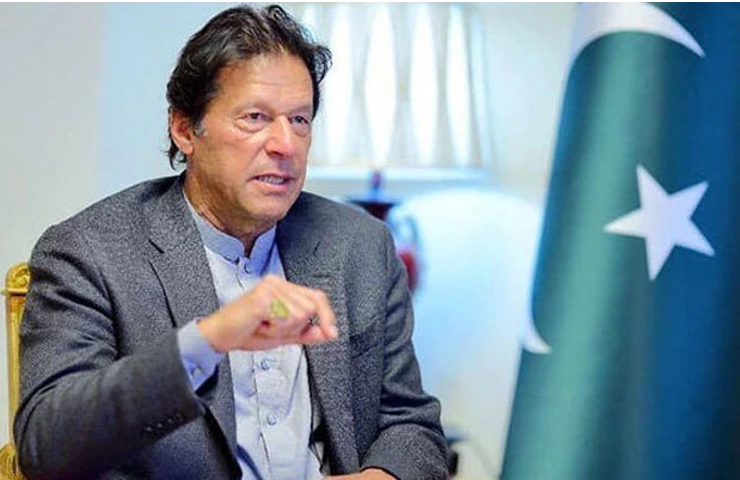As the long march to oust Pakistani Prime Minister Imran Khan kicked off on Sunday from Karachi to Islamabad, the opposition leaders have asked the military establishment to remain neutral when they bring a no-confidence motion against the Imran Khan government.
One of the main constituents of the opposition parties. The co-chairman of Pakistan People’s Party (PPP), Bilalwal Bhutto claimed that the combined opposition has support of 200 parliamentarians which is enough to “kick out” Imran Khan and his government through a no-confidence vote. According to the Pakistani constitution, opposition parties need only 172 votes out of the 342 seats of the National Assembly to win the no-confidence vote.
“The current situation being faced by Pakistan encourages us to hope that this time every military institution would stay within its constitutional ambit and leave politics to politicians. We are very much hopeful that the establishment would remain neutral. And if the establishment stays neutral, Imran Khan is not going to win this no-trust move,” the Dawn newspaper reported Bilawal as saying.
When asked when the no-confidence motion is going to be tabled in Pakistan National Assembly, Bilwal said that the first or second week of March would be crucial in this connection.
“That’s all I can say, leave the timing to us. No-confidence motions are much more complex than they appear,” said the co-chairman of PPP and former President Asif Ali Zardari who has been tasked to get the required magic number to win the no-confidence vote against the Imran Khan government.
The opposition parties have not only been pinning hopes on their allies for support, but claim that some parliamentarians from the ruling PTI were also in touch with them and were only waiting for a signal from the “powerful military establishment” before jumping ship.
According to Pakistani experts, a large number of politicians in the ruling PTI’s ranks are those who do not have ideological links with any political party. They are known as political professionals who always choose the winning side and have sufficient contacts in the “institutions” that decide the fate of elections in Pakistan to figure out which party will lose.
“For these politicians, the time to make decisions for the next general election has arrived. They sense the winds of change which are blowing against the PTI but they want assurance of getting tickets,” says one expert.
The opposition claim that their first priority is to focus on ousting Imran Khan and tackle other important issues after a successful vote of no-confidence. These issues include who will be the prime minister, what will be the composition of the new government, for how long will this government last, not all or some provincial assemblies will also be dissolved and national and provincial elections will be held simultaneously as in the past.
According to insiders, they are fine-tuning their plans in consultation with former prime minister Nawaz Sharif who is in London. Being the largest constituent of the united opposition, there is an agreement that his brother Shabaz Sharif will become the prime minister while the PPP will get the seat of the speaker.
But what happens if, sensing the trouble, Imran Khan decides to dissolve the house and opts for fresh elections?
“Imran Khan will remain the PM till the outcome of the elections in that case. He is feeling the heat and trying to patch up with the military establishment. He is trying to reach out to his friend turned foe, sugar baron Jahangir Khan Tareen who claims to have control over more than 30 MPs of Khan’s ruling party,” says the expert adding that this is the right time for the opposition to strike.
“If the opposition drags its feet much longer on the vote of no-confidence, there will be a credibility issue,” says the expert.
Also Read : Countdown begins for Imran Khan’s exit as the Pak army helps opposition to get no-confidence numbers




















